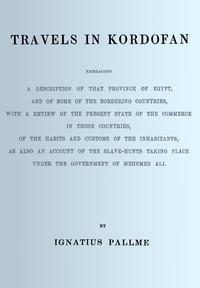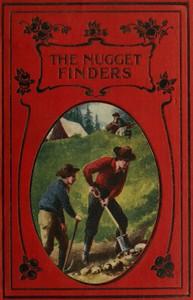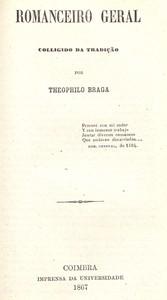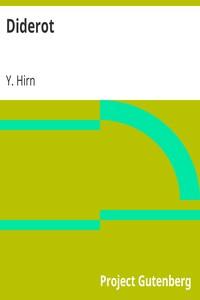|
|
Read this ebook for free! No credit card needed, absolutely nothing to pay.Words: 91404 in 11 pages
This is an ebook sharing website. You can read the uploaded ebooks for free here. No credit cards needed, nothing to pay. If you want to own a digital copy of the ebook, or want to read offline with your favorite ebook-reader, then you can choose to buy and download the ebook.

: Travels in Kordofan by Pallme Ignaz - Nile River; Sudan Description and travel; Kordofan (Sudan : Province) Description and travel@FreeBooksSun 08 Oct, 2023 TRAVELS IN KORDOFAN, ETC. POSITION OF THE COUNTRY BORDERS, RIVERS, SOIL, AND CLIMATE. Kordofan, one of the most southern provinces under the government of the Viceroy of Egypt, extends in the north from Haraza to Kodero, in the south from the Nuba mountains, and eastwards from Caccia to the Shilluk or Shillook mountains, about four degrees of longitude. The desert of Dongola forms its northern border, that of Darf?r its western limit. Towards the south, no definite confines can be described, as the extent of these dominions increases or decreases accordingly as the inhabitants of this part of the country become tributary, either by their own free-will, or are rendered subjects by force, as occasionally occurs, and subsequently free themselves from the yoke. On this account the present government has divided the country into five districts, and regards Kodero, and the free heathen Nuba, as its southern border. Kordofan has no townships on the Bahr-Abiad, or White Nile, for the village nearest to this river is situate at a distance of about four hours' march from its banks. The Nomadic tribes, inhabiting the western shore, belong to the realms of Sennaar, and are entirely distinct from the natives of Kordofan; the Bakara-Kubbabeesh only, a Nomadic tribe, also, frequently drive their herds to the borders of the White River for pasturage. The five districts are named severally: Korci, Bara, Ketshmar, Abou-Haraz, and Dayara. Each of them is governed by a Casheff, or captain of the district, who is at the same time captain in a regiment of the line. Taking a general view of Kordofan, it may be said to consist chiefly of a cluster of small and large oases, which are not far distant from each other, as in the Great Desert. The soil is sandy throughout, and the country is rather flat than mountainous. In the vicinity of Haraza, however, a chain of mountains arises, shelving off towards the White River; while the mountains in the interior are inconsiderable, several of which may be seen towards the south and south-east. The soil is, on the whole, very fertile; for, with the commencement of the rainy season, vegetation springs up from the earth as if by magic, and nature then shows herself in her full vigour and pomp; balsamic odours, which act almost intoxicatingly on the senses, are everywhere breathed forth, and the traveller might imagine himself transplanted into the fairy gardens of the Arabian Nights' tales. Kordofan has no flowing rivers; during the rainy season, some few running streams are formed, but these dry up as quickly as they appear. There are several lakes, or large ponds, in the country, amongst which those at Arat, Birget, Ketshmar, and Caccia, are the most considerable; in the latter, many leeches are found; but the other stagnant waters, which are generated during the rainy season, quickly evaporate, and only those above-named contain water throughout the year. In the vicinity of Haraza, in a north-easterly direction from the village, pure and fresh water for drinking is found on the summit of a mountain during the whole year. There is an abundance of iron ore in the province, respecting which more explicit information may be gleaned from the work of Russegger, the Royal Imperial inspector of mines, who, in the year 1837, travelled through this country as far as Sheibon, to which book I must refer my readers, as geognostic research was not the purpose of my travels. The climate is very unhealthy, especially during the rainy season; no hut is then, indeed, to be met with in which there are not at least several sick; in the dry season, again, all disease disappears; at this time, however, not only man, but all living creatures, suffer from the extreme heat. The eye then rests with melancholy on the desolate and parched plains,-- trophies of the victory of the heat over animated nature,--where nothing is to be seen but bones of men and animals bleached by the burning sun. During the whole of this season, which endures about eight months, the sky is clear and cloudless, and the heat is insupportable, especially in the months of April and May. From eleven o'clock, A.M., to three, P.M., when the thermometer stands in the shade at 38?, or even at 40?, Reaumur , it is impossible for any breathing creature to remain in the open air. Every living being, both men and cattle, with equal eagerness seek the shade, to protect themselves from the scorching rays of a fierce sun. Man sits during these hours as if in a vapour-bath, his cheerfulness of disposition declines, and he is almost incapable of thought; listless, and with absence of mind, he stares vacantly before him, searching in vain for a cool spot. The air breathed is hot as if it proceeded from a heated furnace, and acts in so enervating a manner on the animal economy, that it becomes a trouble even to move a limb. All business ceases, everything is wrapped in a sleep of death, until the sun gradually sinks, and the cool air recalls men and animals again into life and activity. The nights, on the other hand, are so sharp, that it is necessary to be more careful in guarding against the effects of cold in this country, than in the northern parts of Europe during the severest winter, for the consequences frequently prove fatal. During the whole year, day and night are equally divided, or with but imperceptible variation, and, as in all tropical climates, there is no twilight; for with sunset night begins. During the dry season, everything in nature appears desolate and dismal; the plants are burnt up; the trees lose their leaves, and appear like brooms; no bird is heard to sing; no animal delights to disport in the gladness of its existence; every living being creeps towards the forest to secrete itself, seeking shelter from the fearful heat; save that, now and then, an ostrich will be seen traversing the desert fields in flying pace, or a giraffe hastening from one oasis to another. In this season, however, frightful hurricanes occasionally arise, and fill the minds of those, who have not been witness of such a phenomenon in nature before, with the utmost consternation. A powerful current of air, of suffocating heat, blows fiercely from one point of the heavens to the other, devastating everything that lies in its course. The atmosphere bears at these times generally a leaden grey appearance, and is impregnated with fine sand: the sun loses its brilliancy, and total darkness envelopes the earth, rendering it even difficult to distinguish objects at a few paces distant. The sky changes suddenly, becomes of a yellow colour, then assumes a reddish hue, and the sun appears as a blood-red disk. The wind howls, tears up everything within its reach; houses, fences, and trees by the roots, carrying them away with it; levels mounds of sand, and piles up fresh hills. In short, the devastation caused by a hurricane of this kind is beyond description. Unfortunate, indeed, is he who happens to be overtaken in the desert by one of these storms. There is no course left for him to save himself, but to throw himself with his face on the ground, in order to avoid suffocation by the pressure of the atmosphere. Respiration is totally impeded; all the fibres are tightly contracted; the chest threatens to burst for want of pure air; and a man of rather weak constitution, overtaken by one of these hurricanes in the open air, generally succumbs. But robust men, even those in full vigour of life, feel depressed in every limb for several hours after exposure to these storms, and recover but slowly, and by degrees. Animals fly and endeavour to conceal themselves; every creature, in fact, seeks a place of shelter. The camels on journeys indicate the storm before it breaks forth by an unsteadiness of gait, and by drooping their heads towards the ground. The rains begin in the month of June, and terminate with the month of October. Those who have not spent this season in a tropical country, can form no idea of the showers which then drench the earth. The storms generally arise in the east or in the south. A small black cloud is, at first, perceived on the horizon, which increases as it approaches, spreads in a few minutes, with incredible velocity, over the whole region, and then descends. A fearful storm now rages: flash upon flash, and peal succeeding peal, the lightning illumines the whole heavens, and the thunder rolls most fearfully, as if the sky were about to open and the earth to burst; streams of water pour down with violence, which the soil is incapable of imbibing, and torrents are thus formed, destined, however, soon to be lost in the sands. Showers of this description generally last over one quarter of an hour, seldom for a longer period, and very rarely, indeed, are they repeated on the same day. They remit frequently during two, three, or even six days, and this is the most unhealthy, and even dangerous time both for strangers and natives; but it is admitted by general consent, that those of white colour suffer more than the blacks. As if by magic, Nature now awakes from her sleep of death; for, immediately after the first shower, the earth is clad with verdure, the trees shoot forth fresh buds, and a vesture of flowers is spread over the whole country. December and January are the most healthy months, but the nights are then so cold that the thermometer frequently falls to 8?, or even 4? R., especially shortly before sunrise. This rapid change from the extremes of heat and cold, and the pernicious vapours, are very deleterious in their effect on the constitution of man, especially on the health of strangers coming from the northern districts of Egypt or from Europe; and, indeed, few men can ever totally accommodate themselves to this climate. HISTORY. Every one will agree that it is no easy matter to write the history of a country, or, rather, of a province, whose inhabitants live in a state of utter ignorance, and care little for the occurrences which took place but half the period of the life of man before them. There exist, moreover, no chronicles capable of giving information on any event which might serve as reference; thus I was unable to extend my researches, or to learn more than was communicated to me by a faquir, seventy-eight years of age, who appeared to me worthy of belief, and who had been an eye-witness of all the recent events. Kordofan takes its name from a mountain, situate at three and a half hours' march to the south-east of Lobeid. The aborigines are negroes from Nubia, who, even at the present time, inhabit many parts of Kordofan. The word Kordofan itself is of Nubian derivation. Three tribes subsequently immigrated: the Hadejat, el Giomme, and Bederie. The period of this immigration, however, cannot be definitely determined. These three nomadic tribes distributed themselves over the country round about Mount Kordofan, occupied themselves with cattle-breeding, and each tribe had its sheikh, or magistrate; but from these three tribes, collectively, a head was chosen, who acted as impartial judge in all questions of difficulty, and, in fact, as the last authority. This people became, towards the middle of the last century, better acquainted with Sennaar. The King of Sennaar, namely, sent, in the year 1779, the Sheikh Nacib, with two thousand cavalry, to take possession of the country, and the tribes surrendered, with a pretty good grace, to their fate, without offering much resistance. Thus they remained for about five years, under the government of Sennaar. A Melek was instituted, and the people felt themselves happy under his government. Several Arab tribes, and people from Sennaar and Dongola, immigrated into the country, and agriculture and commerce began to flourish. Darfour now directed its attention towards this province, and entered on a campaign, in which the Melek-el-Hashma was driven out of Sennaar, and expelled the country for ever. Meleks now governed this country in the name of the Sultan of Darfour, up to the year 1821, during thirty-five years of the reign of Mehemed Ibn Fadels. During this epoch the country was also prosperous; the inhabitants lived in peace, and were not troubled with taxes; the merchants were exempt from all duties, and the tribute paid was a voluntary present to the Sultan of Darfour. Bara, the second commercial town of importance in the country, was built by the Dongolavi; tribes immigrated from the most distant parts, and this province enjoyed a high degree of prosperity, under the really mild government of Darfour. Commerce extended in all directions; caravans brought the produce from Abyssinia, the interior of Africa, and from Egypt, into the two towns of Lobeid and Bara, whence the greater part was again transported into other countries. Abundance might be said to reign everywhere, and there was no want of any necessaries, whilst all were wealthy, and even the women of the less opulent inhabitants wore golden rings in their noses and ears, and many even golden bracelets and silver anklets round their feet. No other metal but gold or silver was to be seen in the decoration of the women, and many female slaves even wore gold about their persons. Agriculture and cattle-breeding flourished, and there were few inhabitants in the country who did not, to a certain extent, devote themselves to commerce. The whole population, in fact, lived free from care, and was wealthy; singing and dancing resounded from place to place; in short, this was the golden age of Kordofan. This state of happiness was not, however, of long duration, for in the year 1821 Mehemed Ali sent his son-in-law, the notorious Defturdar, with a brigade of four thousand five hundred infantry and cavalry, attended by eight hundred Bedouins and eight pieces of artillery, to subject this country to his power. The people, apprized of his intention, prepared themselves to the utmost of their power for defence. The Melek Moosalem marched out with his troops to meet the Defturdar at Bara,--a march of twelve hours from Lobeid. His numerous but irregular army was well provided with every species of warlike weapons, excepting fire-arms, which were little or not at all known in the country. The cavalry, like the old Numidian equestrian troops, wore a shirt of mail, and pointed helmet without a vizor on their heads, and bore a double-edged sword thirty-six inches in length. The horses were caparisoned with plates of copper. The infantry were nearly naked; armed simply with a shield and spear, and but a small party of them with two-edged swords, and a species of tomahawk. The battle was fierce and bloody. The men of Kordofan rushed with fury upon the foe, and defended their freedom with a total disregard of death; even women participated in the fray. Hundreds of the combatants fell struck by the balls of the enemy; the wounded placed their fingers in their wounds, unable to understand how they could have been hurt, without having been touched by a weapon; so ignorant were they of the use of fire-arms. Infuriated they flung their spears at the cannons; and, having succeeded in capturing a gun for a short time, sought to revenge themselves on it for the destruction it had poured forth, by attacking it with their swords. The battle remained for a long time undecided. The Defturdar placed himself at the head of his cavalry, and, although ill, would not leave the field. Several attacks were valiantly repulsed. The Bedouins put the Turks to the blush by their bravery; where the battle raged hottest, these children of the desert were to be seen discomfiting the enemy most. Victory inclined sometimes to the side of the Turks, sometimes to the side of the men of Kordofan, but it yet remained doubtful. The Turks were sometimes sorely pushed; a Sheikh, however, of the Bedouins, from the race of Gemeat, was fortunate enough to lay Moosalem, the leader of the Kordofanese, prostrate with a pistol shot; his death decided the battle. The army of Kordofan, deprived of its leader, turned and took to flight; they were pursued by the Turkish cavalry, and many of them killed on this route. Amongst the dead on the field of battle three women were even found, who had taken an active part in the fight for their freedom. On the second day after this battle, the Defturdar entered Lobeid with his victorious army. The town was plundered, and nearly wholly sacked; the Defturdar found immeasurable treasure in this place, which this avaricious tyrant immediately appropriated to himself. The country surrendered without further resistance, excepting the mountain of "Dyre," situated at twenty hours' march from Lobeid, which has retained its freedom to the present day. The Turkish army suffered deprivations of all kinds; the greater part fell victims to the climate, and but few survived who could withstand its pernicious influence, and thus escaped with their lives. Free books android app tbrJar TBR JAR Read Free books online gutenberg More posts by @FreeBooks
: The nugget finders by Alger Horatio Jr - Adventure and adventurers Juvenile fiction; Gold mines and mining Juvenile fiction; Australia History 19th century Juvenile fiction@FreeBooksSat 07 Oct, 2023

: Romanceiro geral by Braga Te Filo Compiler - Ballads Portuguese; Folk songs Portuguese@FreeBooksSat 07 Oct, 2023
|
Terms of Use Stock Market News! © gutenberg.org.in2025 All Rights reserved.






